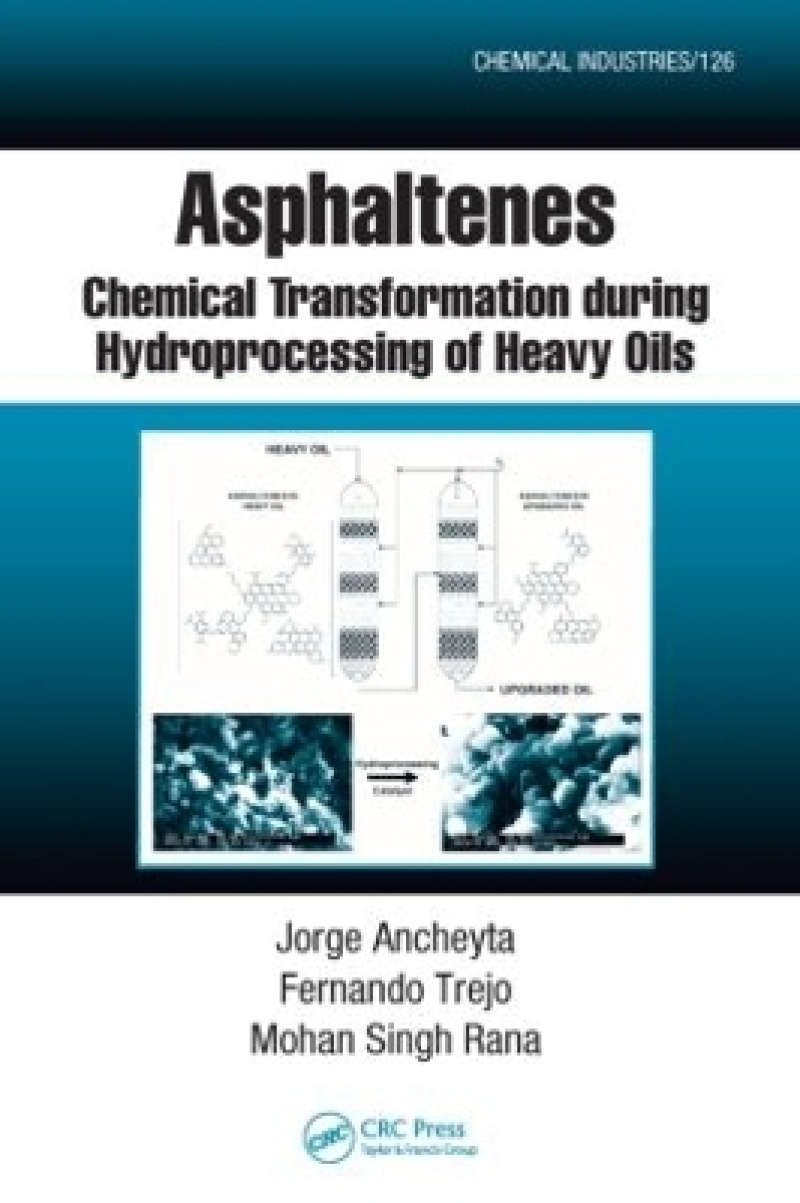<p>...(the authors) have impressive credentials in the field, have co-authored this much-needed volume on an impurity found in upgrading crude oil and the science and practice necessary for its refinement.</p><p>—<em>Book News</em>, June 2010</p>
During the upgrading of heavy petroleum, asphaltene is the most problematic impurity since it is the main cause of catalyst deactivation and sediments formation. Exploring many aspects related to asphaltenes composition and conversion, Asphaltenes: Chemical Transformation during Hydroprocessing of Heavy Oils highlights the various changes that these heavy and complex molecules undergo during catalytic hydroprocessing.
After defining and characterizing asphaltene structure, the book examines the composition of petroleum and the processes and catalysts for upgrading heavy oils. It then details the characterization of asphaltenes after hydroprocessing and the effect of reaction conditions on their structures. The authors also analyze the deactivation and characterization of spent hydroprocessing catalysts as well as the role played by asphaltenes. They cover sediments formation during hydroprocessing and the role of asphaltenes on it. The final chapters describe the hydrocracking and kinetics of asphaltenes and the fractionation of heavy crudes and asphaltenes.
Due to the increasing production of heavy crude oils, asphaltene has become one of the most studied molecules. This book provides a deep understanding of how asphaltenes transform during hydroprocessing, offering insight on designing catalysts and processing for the upgrading of heavy oils.
Definition and Structure of Asphaltenes. Hydroprocessing of Heavy Oils. Changes in Asphaltenes during Hydrotreating. Catalyst Deactivation due to Asphaltenes. Sediments Formation. Hydrocracking and Kinetics of Asphaltenes. Fractionation of Heavy Crudes and Asphaltenes.
Produktdetaljer
Biografisk notat
Jorge Ancheyta is an R&D Project Leader in the Mexican Institute of Petroleum and a professor in the School of Chemical Engineering and Extractive Industries at the National Polytechnic Institute in Mexico City, Mexico.
Fernando Trejo is a researcher in the Center of Research in Applied Science and Advanced Technology at the National Polytechnic Institute in Mexico City, Mexico.
Mohan Singh Rana works at the Kuwait Institute for Scientific Research in Ahmadi, Kuwait.
